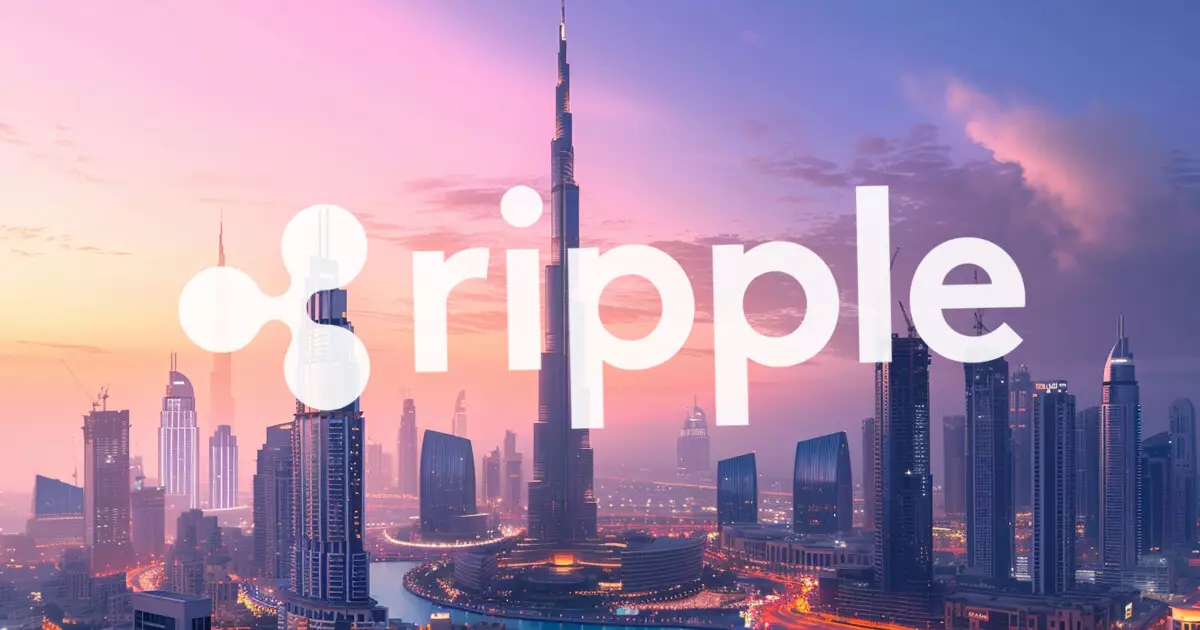In a notable development, Ripple has obtained in-principle approval from the Dubai Financial Services Authority (DFSA), solidifying its status as a pioneering blockchain-based payment service provider in the United Arab Emirates (UAE). This October 1 announcement marks a watershed moment for Ripple as it now stands as the first of its kind to secure a license granted by the DFSA. The significance of this approval cannot be overstated, as it not only underscores Ripple’s commitment to compliance but also enhances its reputation as a regulated player within the global financial ecosystem.
As of now, Ripple boasts a portfolio that extends beyond 55 global licenses, including esteemed licenses from the Monetary Authority of Singapore (MAS) and the New York Department of Financial Services (NYDFS). The acquisition of the DFSA license enables Ripple to amplify its operational scope within the Dubai International Financial Centre (DIFC). This strategic move is set to bolster its capacity to deploy an enterprise-grade digital asset infrastructure across the UAE. Specifically, it empowers Ripple to roll out its Ripple Payments Direct (RPD) solution, which is engineered for enhancing cross-border payment transactions.
Ripple’s objective is not only to streamline cross-border payments but also to transform them into a more rapid and cost-effective process. The approval aligns with Ripple’s mission to integrate fundamental aspects of regulatory compliance while simultaneously investing in essential infrastructure components, such as liquidity management and asset custody. By facilitating seamless transitions between traditional fiat currencies and digital currencies, Ripple is positioning itself as a transformative force in the payments landscape.
In light of Ripple’s growth trajectory, it faces formidable competition from established players like SWIFT, known for being the traditional messaging network in cross-border transactions. However, a recent analysis from global investment bank Houlihan Lokey implies that Ripple is poised to emerge as a significant challenger in this sector. The landscape is evolving, with traditional networks competing against newer innovations in fintech and blockchain solutions, including not just Ripple but also Airwallex, Nium, and Wise.
Ripple’s move to secure its license in Dubai is part of a broader strategy aimed at enhancing its presence in the Middle East, where it established its regional headquarters back in 2020. The UAE’s regulatory framework is regarded as fertile ground for innovative crypto firms, offering an environment conducive to growth and development. This proactive regulatory landscape is integral to Ripple’s ambitions, as it provides access to burgeoning markets across Africa, South Asia, and beyond.
Ripple’s recent DFSA approval marks a significant advancement in its journey to revolutionize cross-border payments. By leveraging the UAE’s regulatory clarity and innovative spirit, Ripple is well-positioned to expand its global footprint and challenge established norms in financial transactions. As the company continues to navigate the complexities of international finance, its regulatory ambitions reflect a meaningful shift towards an integrated future where blockchain technology plays a central role in reshaping global payments.














Leave a Reply